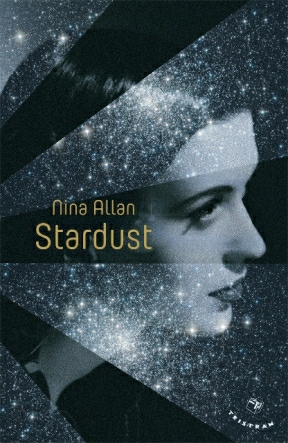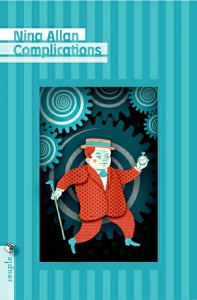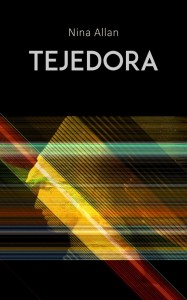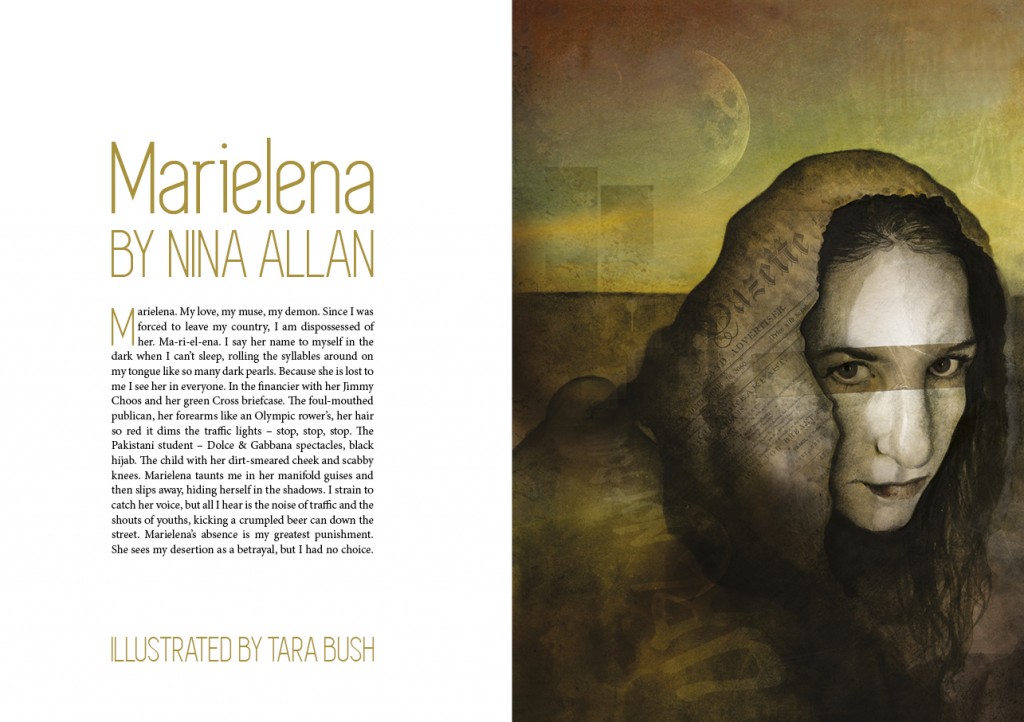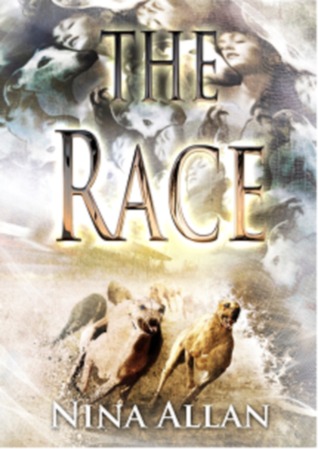The shortlist for the Goldsmith’s Prize – inaugurated last year specifically for ‘fiction at its most novel’ – has just been announced:
Outline by Rachel Cusk (Faber & Faber)
The Absent Therapist by Will Eaves (CB Editions)
J by Howard Jacobson (Jonathan Cape)
The Wake by Paul Kingsnorth (Unbound)
In The Light Of What We Know by Zia Haider Rahman (Picador)
How To Be Both by Ali Smith (Penguin)
Interesting perhaps that one-third of the Goldsmith’s shortlist happens to overlap with the Booker’s – does this mean that the Booker is actively striving to include more innovative fictions in its choices, or simply that the shortlist reflects, as all jury-selected shortlists must, the individual proclivities of a set of judges? The latter, probably. I’m beginning to think that the only way of getting around this problem lies in greater clarification of what any given prize is actually for. The Goldsmith’s jury is actively looking for novels that are interested in some kind of innovation, whether it be in the language, the form, the approach, the subject matter or all the above – an advancement in the novel project, in other words. Or to put it more simply, the Goldsmith’s Prize is interested in writers who are ‘genuinely inventive’, who are engaged to some degree in literary experiment. The Booker, on the other hand, is vaguely in pursuit of ‘the best’. ‘Best’ is notoriously difficult to define – indeed it is a word that can only be defined subjectively. Hence the more muddled, rag-bag kind of shortlists we have come to expect from it.
It’s the same with the Clarke versus the Kitschies, incidentally. The Clarke shambles off in pursuit of ‘the best’ science fiction novel of the year, whilst the Kitschies encourages its judges – and its wider readership – to think about speculative novels that are ‘progressive, intelligent and entertaining’. A more definitive brief gives the judges something concrete to focus on, and in the years since the award’s inception has given the readership an increasingly purposeful-looking set of shortlists to investigate.
I love the idea of the Goldsmith’s Prize, and I hope it will garner increasing critical and media attention in the coming years. So far as I’m concerned at least, this prize is already way ahead of the Booker in its attitudes and goals. And the one thing I notice immediately about this year’s Goldsmith’s shortlist is that all the books on it are of interest to me. Not just one or two, as with most prize shortlists, but all of them.
I note with interest that Rachel Cusk’s novel Outline, passed over by both the Booker and the Bailey’s, is here, which is pleasing to see. Cusk is a writer who has aroused hostility, frequently of the most appallingly sexist kind, and I was fascinated earlier this summer by an interview in which Cusk attempted to analyse the source of this:
“I think it is because I’m not interested in the group, only in the individual. What happens is my message enters the conflicted person reading it who is half self, half society but does not know where one begins and the other ends. I light up that conflict and it makes people angry.”
I have not always been a fan of Cusk’s work, but what I have always admired, unstintingly, is her bravery: her refusal to compromise, her commitment to absolute honesty as a writer. Personally I think it’s this – her honesty, which is not so much confessional as forensic – that makes people uncomfortable. Especially men. And here we are, back to it: when we think of the kinds of words often used to describe Cusk’s writing and even Cusk herself – excoriating, ruthless, furious, lacerating, brutal, self-obsessed – we inevitably rub up against the dictum that female writers aren’t really supposed to be like this. And nor are their books. It’s interesting to wonder if Karl Ove Knausgaard’s novelistic memoirs would have been half so popular with both critics and (male) readers had their author been not Karl, but Kari. Are men allowed to be more daring, more progressive, more outspoken as writers (think Hemingway, Mailer, Bret Easton Ellis, Frey, Knausgaard, the list could go on forever) while those women who venture into similar territory (Plath, Sexton, Kavan, Frame, Zelda Fitzgerald) are only acceptable when there is a tragic and self-dooming aspect to their endeavour?
While male writers are encouraged to be innovative, outspoken, avant garde, are women writers still being told, either directly (through not having their books published) or indirectly (through an underhum of hostility in the press and in society at large) that they should stick to ‘women’s issues’ or shut the f**k up?
Is it harder to be a woman in the avant garde?
I overheard a fascinating conversation on Twitter the other day about women writers and the avant garde and how experimental or ‘cult’ writing is still largely seen by the industry as a male preserve. This led me in turn to a brilliant two-part essay by the writer Sam Mills (please do read this), examining the ways in which “cult female novelists are usually forgotten or ignored, whilst male cult authors, from Burroughs to Hunter S. Thompson, remain literary icons that are cherished by the public imagination.” Mills picks out the Women’s Prize for Fiction for particular censure, pointing out how although the prize has done plenty to promote ‘big themes’ in writing by women, it has still tended to shy away from writers who take a more experimental approach, whose work is not so readily assimilable by a mainstream audience:
“In recent years, whenever I have picked up a Women Fiction’s Prize winner, I have to come to expect a novel that will be brilliant but traditional. It seemed that the Women’s Fiction prize had settled into a pattern of celebrating our more conservative female writers and ignoring the avant-garde ones. This year, though, the revolution happened. Eimear McBride’s experimental A Girl Is A Half-Formed Thing, published by the very small press Galley Beggar after all the main publishing houses had turned it down, took the crown. That said, whilst the win is wonderful, I still fear it will be the exception rather than the norm, given the number of cult and avant-garde authors the prize has ignored over the years.”
Mills consolidates her argument in the second part of the essay, which shows (as mentioned above) how experimentalism in women’s writing has often been equated with madness. After reading Mills’s essay I took a look at the list of previous shortlistees for the Women’s Prize and was dismayed to see how right she is. It is a source of perennial disappointment to me that Nicola Barker is almost invariably passed over not only for the Booker, but for the Orange/Baileys Prize too. It’s not just Barker though. What about Helen Oyeyemi (how could Mr Fox not even have been longlisted)? Janice Galloway? Scarlett Thomas? A. L. Kennedy? Even Jeanette Winterson, for goodness’ sake? And given that the Women’s Prize has allowed Americans in right from the start, it is inconceivable to me that neither Jennifer Egan nor Helen DeWitt has thus far made it on to the shortlist.
Even the Women’s Prize, it would seem, prefers to promote women as great storytellers rather than great thinkers. Whilst I would never argue that this problem is exclusive to women – persuading the industry that readers are open to fiction that does things other than ‘just’ telling a story is a devil’s bargain, whatever your gender – I think it is almost certainly harder for women writers who are perceived as ‘difficult’ in some way to get their work taken up and discussed in a manner befitting their literary and intellectual achievement. You only have to look back on the coverage of Eleanor Catton’s The Luminaries last year to see how quickly discussion of Catton’s masterpiece descended into remarks about her age, dress or appearance, barbed comments on the suitability of the zodiac as a formal template for a serious novel, or whether The Luminaries was in fact serious at all, as opposed to some sort of elaborate hoax, a tedious piece of nineteenth-century pastiche. Some of the press Catton received would have been laughable if it weren’t so shameful. “Male writers get asked what they think, women what they feel,” Catton affirmed in an interview for The Guardian. There’s nothing wrong with writing a negative review (in fact literature would probably benefit from more of them) – it is the tone of derision that leaves one reeling. I don’t think there’s any mileage in pretending that any of this would have happened had Catton been a 27-year-old man.
2013 saw Canadian novelist and professor David Gilmour totally unapologetic about his exclusion of stories written by women from his university teaching schedule, the inference being that fiction by women could not possibly stand up to the kind of rigorous scrutiny Gilmour goes in for. This arrogant, almost cursory kind of sexism is a world away from the more hesitant, intricate soul-searching demonstrated by the British writer Jonathan Gibbs in a blog post he made this February, wondering why it is that he doesn’t read more women:
“Do I cut male writers more slack than women, or do I genuinely prefer male writers to women (my personal pantheon of contemporary writers, as I said before, starts with Geoff Dyer, Javier Marías, Knausgaard, Foster Wallace, Nicholson Baker… and goes through a few more, probably, before it hits Lorrie Moore, Lydia Davis.”
Gibbs is a writer of huge talent (please read him). It would appear that he is also a writer who genuinely wants to understand his attitudes, and is taking active steps to change his perceptions. Both Gilmour’s stance and Gibbs’s though share a tone of mistrust, the sense that whilst novels written by women might be all right for some people to read – other women, probably – they are by definition never going to be able to compete – philosophically, intellectually – with work created by men. Gilmour’s grudging admiration for Virginia Woolf carries with it the hidden subtext that Woolf is a fluke, a quantity of one. Gibbs’s grappling towards an understanding of his ‘instinctive’ preference for male writers for the thing that it is – cultural brainwashing – still cannot quite bring itself to fully acknowledge how bizarre it is that he is still tending towards a view of women writers that lumps us all together as one group, with specific ‘concerns’ and ways of writing that inevitably reveal themselves as female and therefore less durable, less serious.
How peculiar it would seem to these men, how blinkered, if I were to write a blog post explaining how my favourite writers – the writers I most looked up to – all happened to be female (Iris Murdoch, Joyce Carol Oates, Ali Smith, Caitlin R. Kiernan) and that although I had read Nabokov and D. H. Lawrence and George Orwell and David Foster Wallace, I still found they didn’t really speak to my concerns.
As if the spectrum of ‘concerns’ and range of styles and approaches among male writers were not as diverse as exists among writers who happen to be female. Talking about ‘women writers’ in this way is as bizarre as automatically equating Dan Brown with Umberto Eco.
I would have thought that men who pride themselves on their intelligence and cultural refinement would feel a bit more uncomfortable in letting themselves be so readily prompted, guided and defined by a set of societal directives they would hotly deny allegiance to if presented to them in the abstract. “I don’t have a racist, sexist or homophobic bone in my body,” David Gilmour asserts, whilst still insisting the only writers he finds worthy of teaching are “guys – serious, heterosexual guys.”
It serves only to demonstrate the thoroughness of Gilmour’s brainwashing that he seems genuinely not to understand that he has a problem.
